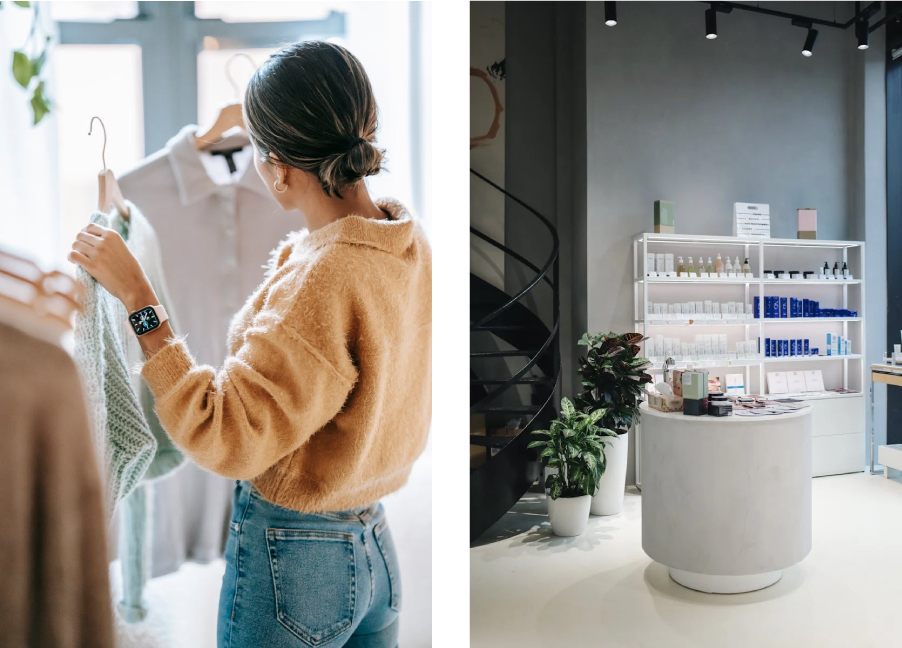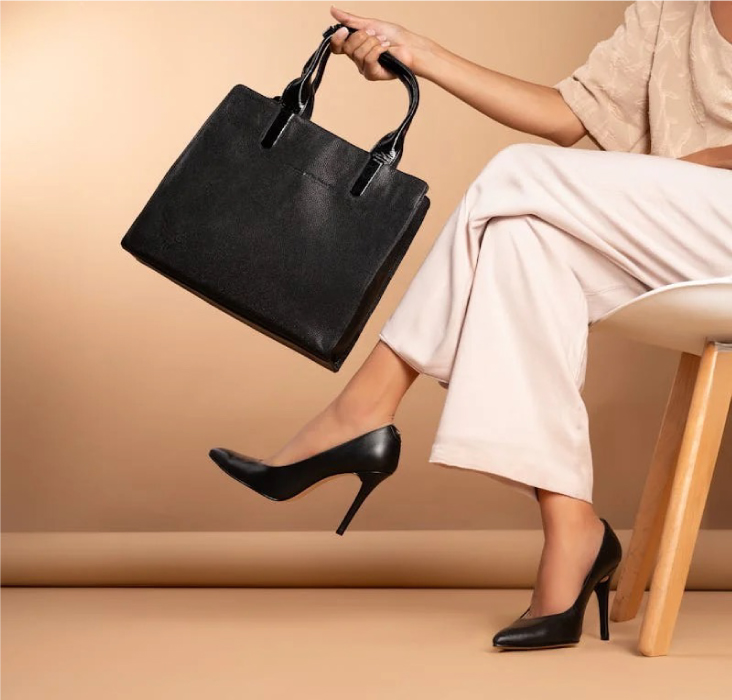In today’s competitive luxury retail market, maximising revenue is more crucial than ever. One of the most effective ways to achieve this is through upselling and cross-selling. Both strategies have proven to significantly increase sales, enhance the customer experience, and strengthen brand loyalty. For retailers in cities like Dubai, Abu Dhabi, and the broader UAE, where luxury brands thrive and consumer expectations are high, mastering these techniques is essential.
In this blog, we will delve into the significance of upselling and cross-selling, their differences, and how they can be used effectively in the context of luxury retail. We will explore the role of learning and development, sales training, team building, and luxury brand training in implementing these strategies to boost sales and customer satisfaction.
Upsell and Cross-Sell: Two Effective Strategies
Before diving into the nuances of upselling and cross-selling, it’s important to understand these concepts. Upselling refers to the practice of encouraging customers to purchase a more expensive version of a product or service than the one they originally intended to buy. Cross-selling, on the other hand, involves offering customers complementary products that enhance or complement their original purchase.
Both strategies are not new; they have been employed for years across different sectors. The concept of upselling and cross-selling is deeply ingrained in the luxury retail market. Think of a customer buying an exquisite fragrance in Dubai’s luxury boutiques. They might be encouraged to purchase the deluxe version of the perfume, or perhaps a luxury skincare set designed to complement it. By integrating upselling and cross-selling into daily sales operations, retailers can maximise the value of each customer interaction, boosting both revenue and the overall customer experience.

The Importance of Upselling and Cross-Selling in Luxury Retail
In the context of luxury retail, upselling and cross-selling take on a more sophisticated form. Given the high value of the products being sold, the strategies need to be executed with finesse and care. A poorly executed upsell or cross-sell could alienate a customer, whereas a well-thought-out approach could increase customer satisfaction and loyalty.
The Role of Learning and Development
The foundation of any successful upselling and cross-selling strategy lies in learning and development. For luxury retailers, this means providing continuous training for sales staff to understand how to approach these strategies without seeming too pushy. Staff must be well-versed in the brand, product knowledge, and customer preferences, enabling them to recommend premium products or complementary items effectively.
Training programmes should include both the technical aspects of upselling and cross-selling and soft skills like customer engagement and relationship-building. This ensures that employees are equipped not just to sell, but to offer a personalised shopping experience that aligns with the high standards of luxury brands.
The Role of Sales Training and Luxury Brand Training
Luxury brand training is crucial for employees who are selling high-end products. Luxury goods have specific selling points, often tied to the brand’s heritage, exclusivity, and quality. In cities like Dubai and Abu Dhabi, where luxury shopping is a major part of the economy, it is essential for staff to communicate these points effectively.
Sales training for luxury retail must go beyond basic techniques and focus on the nuances of high-end consumer behaviour. Luxury buyers often expect a level of personalised service that extends to the products they purchase. For example, if a customer is buying a luxury watch, the sales staff should not only highlight the watch’s features but also explain how it fits into the customer’s lifestyle and enhances their experience. This training can be supported by in-depth learning and development strategies, incorporating role-playing exercises and case studies that simulate real-life scenarios in the store.

Practical Methods for Upselling and Cross-Selling in Luxury Retail
1. Understand the Customer’s Needs
The first step in any successful upselling or cross-selling interaction is understanding the customer’s needs. This can be achieved by actively listening to them and asking open-ended questions. Whether in Dubai’s upscale shopping malls or the streets of Abu Dhabi, luxury consumers expect to feel understood and valued. This is where the role of team buildingcomes into play.
By fostering an environment of collaboration and communication among employees, luxury brands can ensure that all customer-facing staff are aligned in offering tailored recommendations. For example, a customer browsing perfumes may be offered additional skincare products that complement the scent they’re considering. By understanding the needs of the customer, the salesperson can increase the likelihood of a successful upsell or cross-sell.
2. Employ Data-Driven Approaches
In the UAE, where data is readily available due to high digital engagement, luxury brands can leverage technology to support their upselling and cross-selling efforts. Advanced customer relationship management (CRM) systems can track customer preferences and purchase histories. By training staff to use these systems, retailers can ensure that they offer relevant products that meet customer needs at the right time.
For instance, a customer who regularly purchases fragrances might be offered a new, exclusive scent that aligns with their past preferences. Offering personalised recommendations in this manner increases the chances of both upselling and cross-selling. With the right sales training, staff can use this information to build trust and rapport with customers.
3. Create an Exclusive Experience
In luxury retail, the experience is just as important as the product itself. This is especially true when it comes to upselling. When a customer is offered a more expensive product, they should feel that they are receiving a special, elevated experience.
Luxury brands often create VIP experiences for customers, such as private product launches or bespoke consultations. By training employees on how to offer these experiences in conjunction with upselling and cross-selling, retailers can create an environment where customers feel they are being treated with the utmost care and attention.
4. Leverage Product Bundling
Product bundling is a powerful tool in both upselling and cross-selling. A common tactic in the luxury retail sector is to offer exclusive bundles, such as a perfume with a complementary skincare set or a handbag with a matching wallet. This approach not only boosts sales but also enhances the customer’s shopping experience, providing them with a sense of added value.
Training employees to recognise when a customer might benefit from such a bundle is key to maximising the potential of this strategy. Staff should be encouraged to use their luxury brand training to understand how different products complement one another, allowing them to offer these bundles naturally during customer interactions.
5. Provide Incentives for Upgrades
Incentivising customers to make an upgrade can be an effective way to encourage upselling. Whether it’s offering a special discount or a limited-time offer, giving customers a reason to choose the more expensive option can tip the scale towards a successful sale. For example, if a customer is considering purchasing a standard fragrance, offering them a small discount on a deluxe version could make them more inclined to upgrade.
The Impact of Upselling and Cross-Selling on Customer Loyalty
The key to successful upselling and cross-selling lies in its ability to add value to the customer experience. When done right, these strategies can deepen customer loyalty. In the competitive luxury market of the UAE, where consumers are discerning and well-informed, offering a personalised shopping experience is essential. This is where team building and learning and development play an integral role in ensuring staff are well-equipped to understand and cater to customer needs.
When customers feel that the products they are being offered truly enhance their lifestyle or complement their previous purchases, they are more likely to return. In addition, the experience they have with the brand will often extend beyond a simple transaction, fostering long-term loyalty.
Conclusion
In summary, upselling and cross-selling are invaluable strategies in the luxury retail sector, particularly in high-demand markets like Dubai and Abu Dhabi. To effectively implement these techniques, it’s essential to invest in sales training, luxury brand training, and learning and development programmes that equip staff with the skills and knowledge needed to engage customers meaningfully. When executed properly, these strategies not only increase revenue but also enhance the overall customer experience, leading to greater loyalty and long-term success in the luxury market.
By training your team to offer personalised, thoughtful recommendations and understanding the importance of team building and customer engagement, you can create a retail environment that not only drives sales but fosters an emotional connection with your brand. As the luxury retail industry continues to evolve, leveraging the power of upselling and cross-selling will be a key factor in staying ahead of the competition and maximising revenue in an ever-growing market.
By incorporating these strategies into your sales operations, you can ensure that your luxury retail environment not only thrives but excels in providing an exceptional customer experience that is synonymous with luxury.


